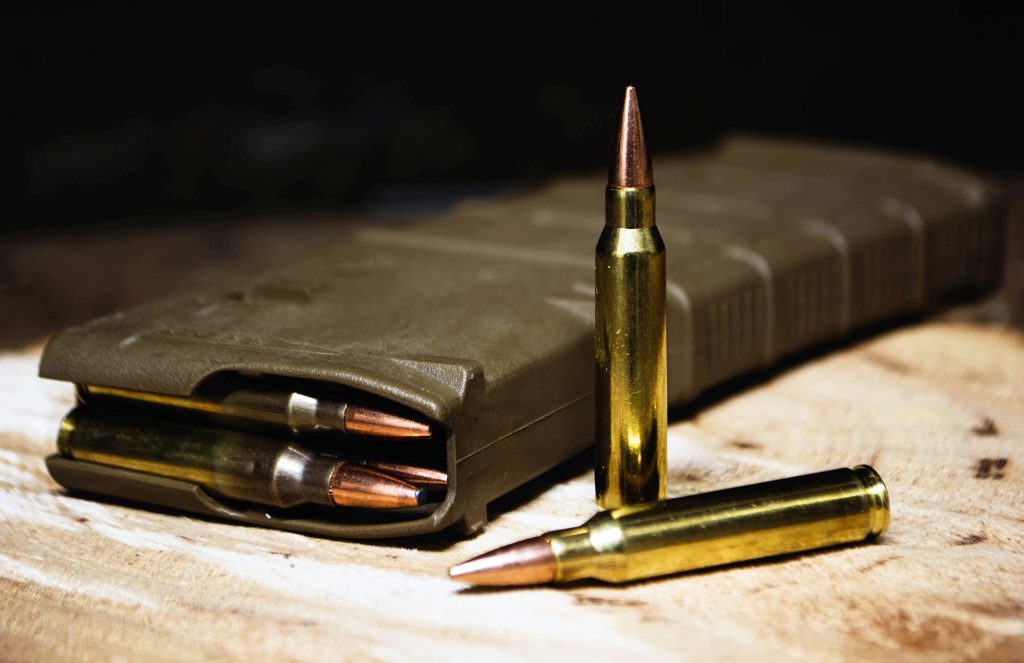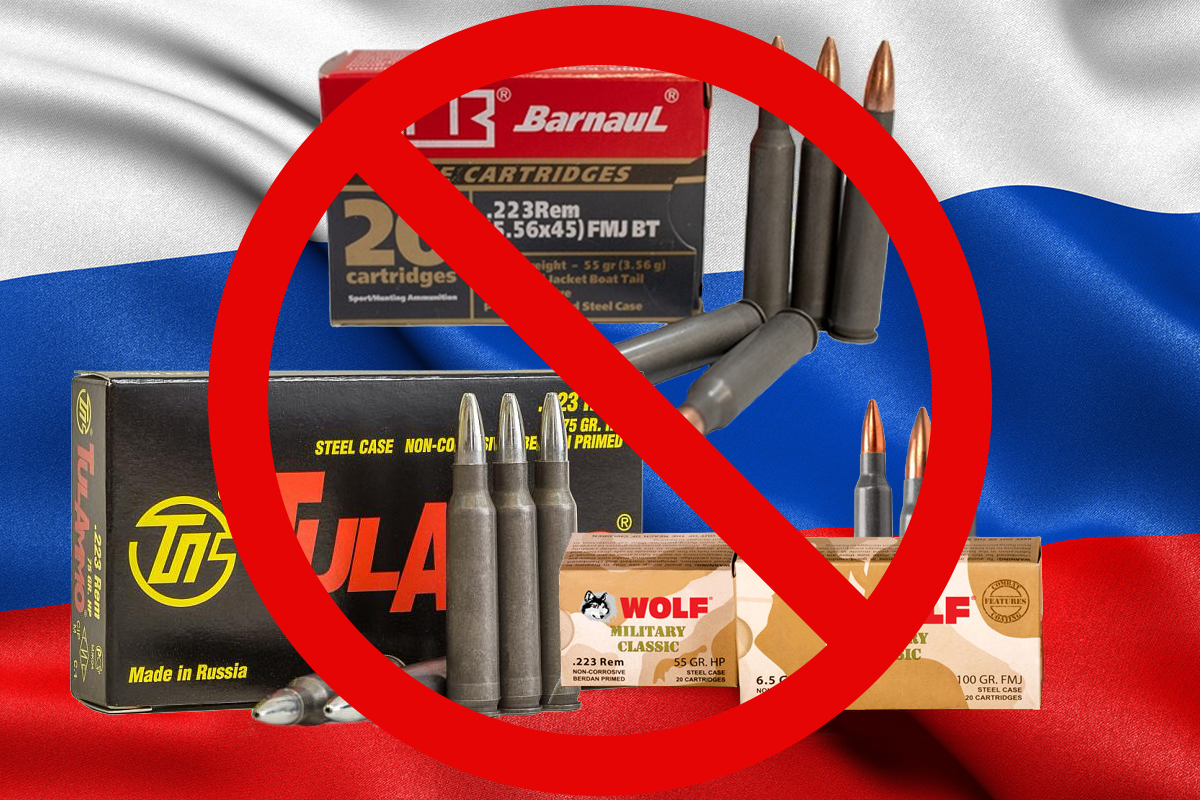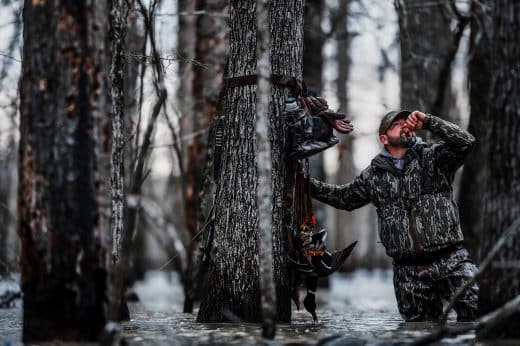Just as ammunition retailers in the US were beginning to recover from an unprecedented buying surge that started in early 2020, new sanctions handed down by the Biden administration may eliminate one of the most plentiful suppliers of affordable ammo: the Russians.
Late last week, the State Department announced it would effectively ban the US importation of ammo manufactured in Russia once current importation licenses expire, or roughly within the next year.
A mad rush to buy the once relatively affordable ammo, most of it steel-cased, at brick-and-mortar stores and online soon followed.
“It is clear to us that the intention is not to harm Russia but rather to hinder the acquisition of firearms and ammunition by American citizens.”
—Gun Owners of America
A press release issued by the State Department on Aug. 20 says the sanctions are intended to penalize the Russian Federation for the highly publicized use of a nerve agent in 2020 to poison Aleksy Navalny. Second Amendment advocates are calling BS, claiming the sanctions are a backdoor ban from an anti-gun administration seeking to negatively impact American gun owners.
“As part of today’s actions, the Department of State is imposing a second round of sanctions on Russia under the Chemical and Biological Weapons Control and Warfare Elimination Act (CBW Act),” the release says. “These include a restriction on the permanent importation of firearms or ammunition manufactured or located in Russia pursuant to new or pending permit applications as well as further restrictions on nuclear and missile-related technology exports to Russia.”
The National Rifle Association’s Institute for Legislative Action (NRA-ILA), the organization’s lobbying arm, says the new importation restrictions won’t impact Russia economically and that the administration is attempting to limit the supply of ammunition on the US market, as it has not been able to enact any federal gun-control measures.
“Ammunition exports to the United States are only a small percentage of the GDP of the Russian Federation, but Russian origin ammo makes up a large part of the American ammunition supply,” said the NRA-ILA in a statement. “American gun owners were already suffering from a market where demand was exceeding available supply. This new move by the Biden Administration will severely worsen the present supply problems.”
The importation of Russian firearms has been banned for some time by previous sanctions, and the restrictions on nuclear and missile technology won’t impact everyday Americans, but the sanctions on ammunition almost certainly will.
The State Department said in a fact sheet released to the public that it will grant no new importation licenses but that those with current licenses will be permitted to continue importing ammunition until they expire. The licenses expire after one year or when the allocated number of approved items has been imported, whichever comes first.
If the Russian Federation meets US demands, the sanctions will be lifted after a minimum of 12 months. Since that’s extremely unlikely, the sanctions will likely remain indefinitely.

So these sanctions won’t cut off the flow of Russian-made ammunition immediately, but it will soon be gone from US inventories, and it probably won’t return any time soon.
Gun Owners of America (GOA), a prominent 2A advocacy organization, made a statement regarding the sanctions on Twitter.
“We are currently exploring administrative, congressional, and legal avenues to respond to these new sanctions,” GOA tweeted. “It is clear to us that the intention is not to harm Russia but rather to hinder the acquisition of firearms and ammunition by American citizens.”
Charles Brown, the owner of MKS Supply, one of the country’s largest importers of Russian-made ammunition, said a whopping 30% to 40% of ammunition sold in the US comes from manufacturers in Russia. MKS has exclusive rights in the US to distribute Barnaul ammo, the only brand guaranteed to meet Russian military specifications.
“In the short term, there is still plenty of Russian-made ammo to be had,” Brown said. “Imported orders have a four- to six-month lead time, so anything that’s already in the queue is exempt from the sanctions. However, that supply will dry up quickly, put even more pressure on US companies and, undoubtedly, raise prices.”

The ban on Russian ammo is the latest in the Biden administration’s efforts to restrict gun rights.
The administration has proposed restricting what it has deemed “ghost guns” and banning pistol braces. There has been much talk of the ATF potentially reclassifying many AR pistols as short-barreled rifles, and the administration has also floated a national ban on so-called “assault weapons” and “high-capacity” magazines.
So far, none of these efforts have resulted in any new restrictions or legislation. Efforts this year to enact the bump-stock ban ordered by the Trump administration have also been stymied.
At the end of the day, if this ammunition importation ban withstands incoming legal challenges like those mentioned by GOA, it could deepen and prolong the widespread ammunition shortage that many shooters and hunters thought, hoped, was coming to an end.
Read Next: Here Are the Reasons for the National Ammunition Shortage








Will says
WHAT IS IT GOING TO TAKE TO GET RID OF THE COMMIE DEMOCRATS WHO ARE OUT TO TOTALLY “F” UP THE U.S. ?????…
Jaydon says
What’s the update or current status of this?
Reid Hankins says
Has the message have any merit ???